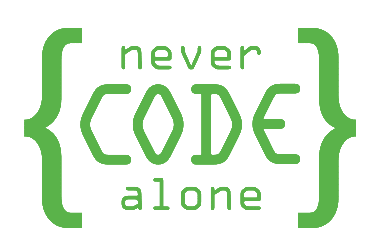„Wir müssen unsere PHP-Anwendung mit Claude verbinden“ – ein Satz, den ihr als Developer oder Tech-Lead in den letzten Monaten sicher öfter gehört habt. Mit dem offiziellen MCP SDK für PHP, das Symfony gemeinsam mit der PHP Foundation und Anthropic entwickelt, wird aus diesem Wunsch endlich Realität. Nach über 15 Jahren Erfahrung in Softwarequalität, Open Source und Remote Consulting zeigen wir euch heute, warum das Model Context Protocol (MCP) die Art und Weise transformiert, wie eure PHP-Anwendungen mit AI-Systemen kommunizieren.
Warum das Symfony MCP SDK ein Game-Changer wird
Das Model Context Protocol ist wie USB-C für AI-Integrationen – ein universeller Standard, der endlich Ordnung ins Chaos bringt. Statt für jede AI-Anwendung eigene Schnittstellen zu bauen, erstellt ihr einmal einen MCP Server und nutzt ihn überall.
Die Führung durch Symfony bringt dabei drei entscheidende Vorteile:
- Symfony Standards: Coding Standards und Backward Compatibility Promise garantieren Stabilität
- Production-Ready von Tag 1: Keine experimentellen Workarounds mehr – das ist offizieller Standard
- PHP Foundation Support: Langfristige Unterstützung durch die wichtigsten PHP-Akteure
Das Team von Never Code Alone hat in unzähligen Remote-Consulting-Projekten erlebt, wie kritisch standardisierte Schnittstellen für die Kommunikation zwischen verschiedenen Systemen sind. MCP löst genau dieses Problem für die AI-Integration.
Die 10 wichtigsten Fragen zum Symfony MCP SDK – direkt beantwortet
1. Was genau ist das Model Context Protocol und warum braucht PHP ein offizielles SDK?
MCP ist ein offener Standard von Anthropic, der definiert, wie AI-Modelle mit externen Datenquellen und Tools kommunizieren. Stellt es euch wie eine universelle Sprache vor, die AI-Assistenten (Claude, ChatGPT, Cursor) mit euren PHP-Anwendungen sprechen lässt.
Für euch als PHP-Developer bedeutet das:
composer require mcp/sdkUnd schon könnt ihr Tools, Resources und Prompts exponieren, die AI-Modelle nutzen können. Keine komplexen REST-API-Wrapper mehr, keine Custom-Integrationen für jede AI-Plattform.
Warum Symfony die Führung übernimmt:
- David Soria Parra (MCP Co-Creator) war PHP 5.4/5.5 Release Manager
- Symfony’s Expertise in langlebigen, stabilen APIs
- Framework-agnostische Architektur für das gesamte PHP-Ökosystem
Praxis-Tipp aus unseren Projekten: MCP-Server sind besonders wertvoll für interne Tools. Eure Mitarbeiter können via Claude direkt auf Firmendaten zugreifen – sicher und kontrolliert.
2. Wie unterscheidet sich das offizielle SDK von bestehenden Community-Lösungen wie php-mcp?
Das offizielle SDK konsolidiert die besten Ansätze aus verschiedenen Community-Projekten, insbesondere Kyrian Obikwelu’s PHP-MCP:
Technische Evolution:
// PHP-MCP Community Version
$client = new PhpMcpClientClient();
$session = $client->connect($serverParams);
// Offizielles Symfony MCP SDK
use McpCapabilityAttributeMcpTool;
class CalculatorElements {
#[McpTool(name: 'add_numbers')]
public function add(int $a, int $b): int {
return $a + $b;
}
}Symfony-spezifische Verbesserungen:
- Vollständige PSR-Standards Compliance
- Symfony Coding Standards durchgängig
- Backward Compatibility Promise bis Major Release
- Integration in Symfony’s Release-Zyklus
- Profiling mit Symfony Profiler möglich
Der entscheidende Vorteil: Das SDK wird Teil des Symfony-Ökosystems mit allen Garantien für Stabilität und Langlebigkeit.
3. Wie integriere ich das MCP SDK in meine bestehende Symfony-Anwendung?
Symfony-Integration ist nahtlos, da das SDK nativ für Symfony entwickelt wird:
Installation und Konfiguration:
composer require symfony/mcp-sdkSymfony Bundle Configuration:
# config/packages/mcp.yaml
mcp:
app: 'my-app'
version: '1.0.0'
transports:
stdio: true
sse: true
servers:
main:
transport: 'stdio'
command: 'php bin/console mcp:server'Service-Definition mit Symfony DI:
// src/Mcp/Tools/DatabaseTool.php
namespace AppMcpTools;
use McpCapabilityAttributeMcpTool;
use DoctrineORMEntityManagerInterface;
class DatabaseTool
{
public function __construct(
private EntityManagerInterface $em
) {}
#[McpTool(name: 'get_user_stats')]
public function getUserStats(int $userId): array
{
return $this->em->getRepository(User::class)
->getStatistics($userId);
}
}Automatische Service-Discovery nutzt Symfony’s Autowiring – keine manuelle Registration nötig!
4. Wie nutze ich Symfony Console Commands als MCP Tools?
Symfony Console Commands lassen sich elegant als MCP Tools exponieren:
Console Command als Tool:
// src/Command/DataExportCommand.php
namespace AppCommand;
use SymfonyComponentConsoleAttributeAsCommand;
use McpCapabilityAttributeMcpTool;
#[AsCommand(name: 'app:export:data')]
#[McpTool(name: 'export_data', description: 'Exportiert Daten im gewünschten Format')]
class DataExportCommand extends Command
{
protected function execute(InputInterface $input, OutputInterface $output): int
{
$format = $input->getArgument('format');
$data = $this->exportService->export($format);
// MCP Response
return $data;
}
}Command Execution via MCP:
// MCP ruft Command auf
$application = new Application($kernel);
$command = $application->find('app:export:data');
$output = new BufferedOutput();
$command->run(new ArrayInput(['format' => 'json']), $output);Unsere Erfahrung: Existing Console Commands als MCP Tools zu nutzen beschleunigt die Migration enorm. Ihr habt sofort dutzende Tools verfügbar.
5. Welche Symfony-Components arbeiten optimal mit MCP zusammen?
Das MCP SDK integriert sich nahtlos mit Symfony’s Core Components:
Messenger Component für Async Operations:
// Async Tool mit Symfony Messenger
#[McpTool(name: 'process_large_dataset')]
public function processDataset(array $data): string
{
$this->messageBus->dispatch(
new ProcessDatasetMessage($data)
);
return 'Processing started, job_id: ' . $jobId;
}Security Component für Authorization:
use SymfonyComponentSecurityCoreAuthorizationAuthorizationCheckerInterface;
class SecureTool
{
public function __construct(
private AuthorizationCheckerInterface $authChecker
) {}
#[McpTool(name: 'delete_content')]
public function deleteContent(int $id): bool
{
if (!$this->authChecker->isGranted('ROLE_ADMIN')) {
throw new AccessDeniedException();
}
// Delete logic
}
}HttpClient für External Services:
#[McpTool(name: 'check_external_api')]
public function checkApi(): array
{
$response = $this->httpClient->request('GET', 'https://api.example.com/status');
return [
'status' => $response->getStatusCode(),
'data' => $response->toArray()
];
}6. Wie handle ich Authentication und Authorization im MCP Server?
Symfony’s Security Component bietet robuste Sicherheitsmechanismen für MCP:
JWT Authentication Setup:
# config/packages/security.yaml
security:
firewalls:
mcp:
pattern: ^/mcp
stateless: true
jwt: ~Tool-Level Security mit Voters:
// src/Security/Voter/McpToolVoter.php
class McpToolVoter extends Voter
{
protected function supports(string $attribute, mixed $subject): bool
{
return str_starts_with($attribute, 'MCP_TOOL_');
}
protected function voteOnAttribute(string $attribute, mixed $subject, TokenInterface $token): bool
{
$user = $token->getUser();
$toolName = str_replace('MCP_TOOL_', '', $attribute);
return $this->canAccessTool($user, $toolName);
}
}Rate Limiting mit Symfony:
use SymfonyComponentRateLimiterRateLimiterFactory;
class RateLimitedTool
{
#[McpTool(name: 'expensive_operation')]
public function expensiveOperation(): array
{
$limiter = $this->rateLimiterFactory->create('mcp_tools');
if (!$limiter->consume(1)->isAccepted()) {
throw new TooManyRequestsException();
}
// Operation logic
}
}7. Wie teste ich meine MCP Tools mit PHPUnit und Symfony?
Testing ist essentiell für zuverlässige MCP-Integrationen:
Functional Test für MCP Tools:
// tests/Mcp/Tools/CalculatorToolTest.php
namespace AppTestsMcpTools;
use SymfonyBundleFrameworkBundleTestKernelTestCase;
class CalculatorToolTest extends KernelTestCase
{
public function testAddNumbers(): void
{
self::bootKernel();
$container = static::getContainer();
$tool = $container->get(CalculatorTool::class);
$result = $tool->add(5, 3);
$this->assertEquals(8, $result);
}
}Integration Test mit MCP Protocol:
use SymfonyBundleFrameworkBundleTestWebTestCase;
class McpServerTest extends WebTestCase
{
public function testToolDiscovery(): void
{
$client = static::createClient();
$client->request('POST', '/mcp/rpc', [
'jsonrpc' => '2.0',
'method' => 'tools/list',
'id' => 1
]);
$response = json_decode($client->getResponse()->getContent(), true);
$this->assertArrayHasKey('tools', $response['result']);
$this->assertContains('add_numbers', array_column($response['result']['tools'], 'name'));
}
}Mocking External Dependencies:
public function testToolWithExternalService(): void
{
$httpClient = $this->createMock(HttpClientInterface::class);
$httpClient->expects($this->once())
->method('request')
->willReturn(new MockResponse('{"status": "ok"}'));
$tool = new ExternalApiTool($httpClient);
$result = $tool->checkStatus();
$this->assertEquals(['status' => 'ok'], $result);
}8. Wie nutze ich Symfony Events für MCP Monitoring?
Symfony’s Event System ermöglicht detailliertes Monitoring:
MCP Event Subscribers:
// src/EventSubscriber/McpEventSubscriber.php
namespace AppEventSubscriber;
use SymfonyComponentEventDispatcherEventSubscriberInterface;
use McpEventToolCalledEvent;
use PsrLogLoggerInterface;
class McpEventSubscriber implements EventSubscriberInterface
{
public function __construct(
private LoggerInterface $logger,
private MetricsCollector $metrics
) {}
public static function getSubscribedEvents(): array
{
return [
ToolCalledEvent::class => 'onToolCalled',
ToolFailedEvent::class => 'onToolFailed',
];
}
public function onToolCalled(ToolCalledEvent $event): void
{
$this->logger->info('MCP Tool called', [
'tool' => $event->getToolName(),
'params' => $event->getParameters(),
'user' => $event->getUserIdentifier()
]);
$this->metrics->increment('mcp.tools.called', [
'tool' => $event->getToolName()
]);
}
}Performance Monitoring mit Stopwatch:
use SymfonyComponentStopwatchStopwatch;
class MonitoredTool
{
public function __construct(private Stopwatch $stopwatch) {}
#[McpTool(name: 'heavy_computation')]
public function compute(array $data): array
{
$this->stopwatch->start('mcp_computation');
// Heavy computation
$result = $this->processData($data);
$event = $this->stopwatch->stop('mcp_computation');
return [
'result' => $result,
'duration_ms' => $event->getDuration()
];
}
}9. Wie migriere ich von symfony/ai zum neuen MCP SDK?
Die Migration vom experimentellen symfony/ai Package ist straightforward:
Alt (symfony/ai):
use SymfonyComponentAiMCPServer;
$server = new Server();
$server->addTool('calculate', function($a, $b) {
return $a + $b;
});Neu (mcp/sdk):
use McpServerServer;
use McpCapabilityAttributeMcpTool;
class MigrationExample
{
#[McpTool(name: 'calculate')]
public function calculate(int $a, int $b): int
{
return $a + $b;
}
}
$server = Server::make()
->withElements(new MigrationExample())
->build();Migration Checkliste:
- ✅ Dependencies updaten:
symfony/aientfernen,mcp/sdkhinzufügen - ✅ Namespace Updates:
SymfonyComponentAiMCP→Mcp - ✅ Tool-Definitionen auf Attributes umstellen
- ✅ Transport Layer konfigurieren
- ✅ Tests aktualisieren
Deprecation Timeline: symfony/ai wird mit dem stable Release von mcp/sdk deprecated und später entfernt.
10. Wann kommt Version 1.0 und wie sieht die Roadmap aus?
Das SDK entwickelt sich schnell, hier der aktuelle Stand:
Status Q1/Q2 2025:
- ✅ Public Repository auf GitHub
- ✅ Composer Package verfügbar
- 🔄 Community Feedback Phase (läuft)
- 📅 Version 1.0.0 (Q2 2025 geplant)
Roadmap Features:
Version 0.x (Current):
- Basic MCP Protocol Implementation
- STDIO & HTTP Transports
- Tool & Resource Support
Version 1.0 (Q2 2025):
- Stable API
- Full Symfony Integration
- Production Ready
- Performance Optimizations
Version 1.1+ (2025):
- Advanced Transports (gRPC)
- Clustering Support
- Enhanced Monitoring
- AI Model-specific OptimizationsSymfony LTS Alignment: Das SDK wird mit Symfony 7.0 LTS (November 2025) full-featured sein.
Solltet ihr jetzt starten?
- JA für: Neue Projekte, Proof of Concepts, Development
- DEFINITIV JA für: Symfony AI Hackathon Teilnahme
- WARTEN für: Mission-critical Legacy-Systeme ohne Update-Möglichkeit
Best Practices aus über 15 Jahren Consulting-Erfahrung
Nach unzähligen Integrationen haben wir bei Never Code Alone folgende Standards etabliert:
✅ Start Simple: Ein Tool, ein klarer Zweck, dann erweitern
✅ Document Everything: OpenAPI-ähnliche Descriptions für alle Tools
✅ Test First: PHPUnit Tests vor Production Deployment
✅ Monitor Always: Symfony Events für Observability nutzen
✅ Version Smart: Tools versionieren, alte deprecated markieren
✅ Secure by Default: Symfony Security Component konsequent einsetzen
Der entscheidende Vorteil für eure Projekte
Das Symfony MCP SDK ist mehr als eine Library – es ist die Brücke zwischen PHP und der AI-Zukunft. Mit Symfony’s bewährten Standards und der Unterstützung der PHP Foundation habt ihr:
- Langfristige Stabilität für eure AI-Integrationen
- Nahtlose Integration in bestehende Symfony-Projekte
- Community-Support durch das gesamte PHP-Ökosystem
- Production-Ready Code von Tag 1
Direkte Unterstützung für euer Team
Ihr wollt das MCP SDK optimal in eure Symfony-Anwendungen integrieren? Oder braucht ihr Unterstützung bei der Architektur eurer AI-Integration? Mit über 15 Jahren Expertise in Softwarequalität und Remote Consulting helfen wir euch gerne weiter.
Kontakt: roland@nevercodealone.de
Gemeinsam bringen wir eure PHP-Anwendungen ins AI-Zeitalter – keine theoretischen Konzepte, sondern praktische Lösungen die funktionieren.
Fazit: PHP ist bereit für die AI-Zukunft
Das Symfony MCP SDK markiert einen Wendepunkt für PHP im AI-Ökosystem. Von der ersten Integration bis zum Production-Deployment – Symfony liefert die Tools für erfolgreiche AI-Integration.
Startet heute: Installiert das SDK, baut euren ersten MCP Server und lasst Claude mit eurer Anwendung sprechen. Die Zukunft der AI-Integration beginnt jetzt.
Never Code Alone – Gemeinsam für bessere Software-Qualität!

